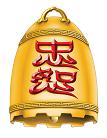Confucianism_in_Indonesia
Supreme Council for the Confucian Religion in Indonesia
Confucian church established in 1955 in Indonesia
The Supreme Council for the Confucian Religion in Indonesia (Indonesian: Majelis Tinggi Agama Konghucu Indonesia, MATAKIN; Chinese: 印尼孔教總會; pinyin: yìnní kǒngjiào zǒnghuì) is a Confucian church established in 1955 in Indonesia, comprising the communities of practitioners of Confucianism mostly among Chinese Indonesians.[citation needed] Together with the Hong Kong Confucian Academy it is one of the two branches that formed after the dissolution of mainland China's Confucian Church founded by Kang Youwei in the early 20th century.
This article needs additional citations for verification. (February 2022) |

